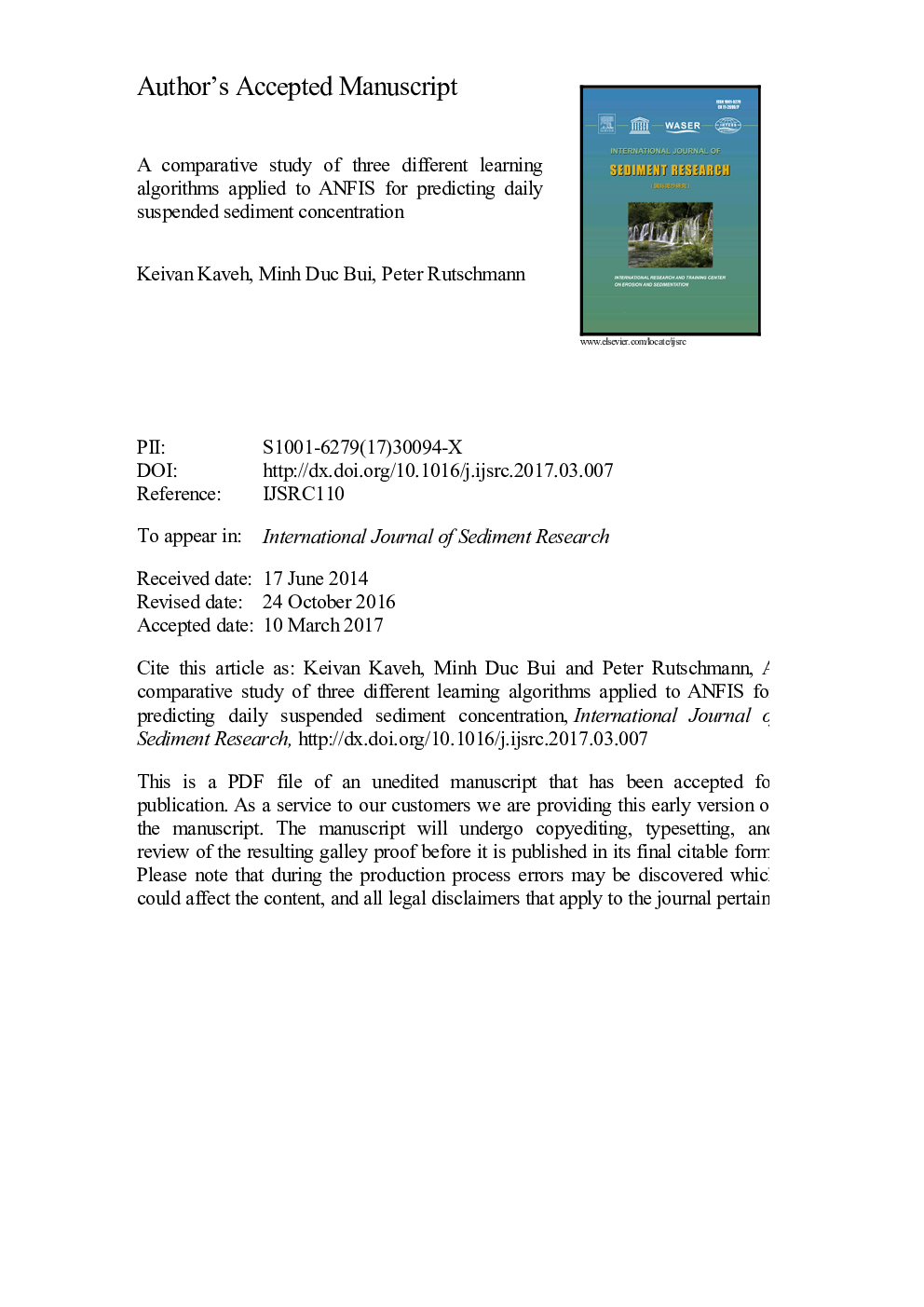| Article ID | Journal | Published Year | Pages | File Type |
|---|---|---|---|---|
| 8911150 | International Journal of Sediment Research | 2017 | 24 Pages |
Abstract
The modeling and prediction of suspended sediment in a river are key elements in global water recourses and environment policy and management. In the present study, an Adaptive Neuro-Fuzzy Inference System model trained with the Levenberg-Marquardt learning algorithm is considered for time series modeling of suspended sediment concentration in a river. The model is trained and validated using daily river discharge and suspended sediment concentration data from the Schuylkill River in the United States. The results of the proposed method are evaluated and compared with similar networks trained with the common Hybrid and Back-Propagation algorithms, which are widely used in the literature for prediction of suspended sediment concentration. Obtained results demonstrate that models trained with the Hybrid and Levenberg-Marquardt algorithms are comparable in terms of prediction accuracy. However, the networks trained with the Levenberg-Marquardt algorithm perform better than those trained with the Hybrid approach.
Related Topics
Physical Sciences and Engineering
Earth and Planetary Sciences
Geochemistry and Petrology
Authors
Keivan Kaveh, Minh Duc Bui, Peter Rutschmann,
